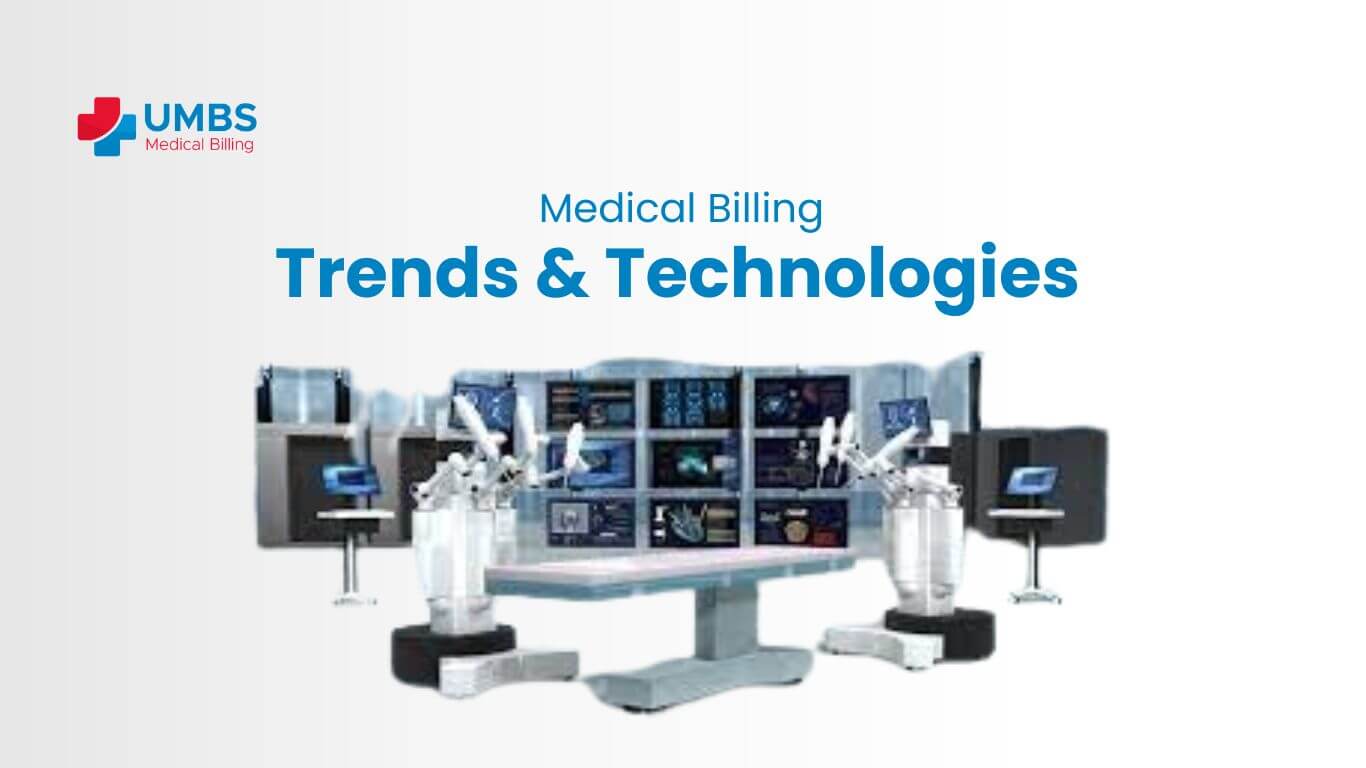This is an exciting period for healthcare, marked by the swift rise of virtual care and other technological advancements. Recent medical billing Trends and technologies and statistics highlight emerging trends, such as the widespread adoption of healthcare billing technology and a transition toward virtual payment methods. We’ve gathered some intriguing statistics about the present state of the medical billing industry, offering insight into its current trajectory.
What are the Latest Trends & Technologies in Medicare
The field of Medicare is undergoing major changes, thanks to advancements like automation, artificial intelligence, and cloud-based tools. By embracing these innovations, healthcare providers can streamline billing processes, ensuring financial stability and improving patient experiences. Additionally, we’ll delve into the challenges the industry faces as it adjusts to these shifts.
Trends
Numerous emerging trends are reshaping the medical billing industry, aiming to enhance efficiency, accuracy, and patient satisfaction. These trends include:
- Automation
- Integration of AI and ML technologies
- Adoption of cloud
- Outsourcing
Automation
Automation simplifies the Medicaid process, starting from patient registration to claim submission, which minimizes errors and boosts efficiency. Utilizing automated systems such as electronic health records and practice management platforms like Medifusion.
Artificial Intelligence & Machine Learning
Medical billing now leverages the integration of artificial intelligence (AI) and machine learning (ML) technologies, marking a significant advancement in the field. These innovations streamline processes, detect errors, and predict potential issues. Through the analysis of vast data sets, these technologies identify patterns and trends, thereby improving the accuracy of billing codes and optimizing the overall efficiency of the billing process.
Cloud-based
Cloud-based medical billing solutions, such as those offered by UMBS, encompass practice management software and EHR systems like Medifusion. These tools offer secure, accessible, and scalable features for handling medicare data. With real-time updates, seamless data sharing, and remote access capabilities, they simplify collaboration and claim tracking for healthcare providers and billing professionals alike.
Outsourcing Practices
Healthcare providers are turning to outsource Medicaid services to boost efficiency, cut costs, and concentrate on their main tasks. Teaming up with a reliable medical billing services provider such as UMBS guarantees precise and prompt claims processing, all while minimizing the potential pitfalls of handling billing in-house.
Technologies
Embracing the latest advancements in medical billing technology enhances data management, security, and interoperability, resulting in a smoother, patient-focused billing experience. Implementing these technologies is vital for overcoming industry challenges and fostering growth. Key technologies to consider include:
- Electronic Health Records (EHRs)
- Blockchain
- Telemedicine
- Wearable
Electronic Health Records (EHRs)
Electronic health records (EHR), are digital copies of patients’ medical histories. They simplify the medical billing process by offering immediate access to precise patient information, lowering the chance of billing mistakes, and enhancing collaboration between healthcare providers and billing teams. At UMBS, we recognize the importance of utilizing EHRs effectively for seamless healthcare management.
Blockchain
Blockchain technology has the potential to enhance medical billing significantly. By improving data security, transparency, and interoperability, it offers a decentralized, tamper-proof digital ledger. This innovation can effectively reduce billing fraud, streamline claims processing, and facilitate secure data sharing among healthcare providers, billing staff, and insurance companies.
Telemedicine
Telemedicine involves using technology for consultations and prescriptions. For instance, doctors can use video-conferencing through software and apps to examine patients remotely, without needing to be physically present. This approach has revolutionized healthcare delivery, allowing for remote consultations, monitoring, and treatments. As telemedicine expands, medicare practices must evolve to include virtual visits, remote patient monitoring, and other telehealth services.
Wearable Devices
Wearable devices such as fitness trackers and smartwatches are now being widely used for remote patient monitoring and preventive healthcare. These gadgets collect valuable data about patient health, which can help in making diagnoses, creating treatment plans, and handling billing. With the growing integration of wearable technology into healthcare services.
Medical Billing Statistics 2024
Medical billing statistics reveal concerning trends affecting both consumers and providers. The escalation of medical debt is alarming, with half of all Americans now grappling with healthcare costs. Furthermore, medicare errors—often stemming from manual data entry mistakes—affect the majority of bills, costing the healthcare industry billions annually.
Key statistics include:
- 50% of US residents carry medical debt, marking a 4% increase since 2020. (Source: Forbes)
- 48% of US households incurred healthcare expenses in the past year, with 17% facing costs exceeding $1,500. (Source: Aflac)
- Recent data indicates that 80% of US medical bills contain errors. (Source: Becker’s Hospital Review)
- On average, hospital bills exceeding $10,000 contain $1,300 in errors. (Source: Equifax)
- Poor billing practices contribute to an estimated annual loss of $125 billion for doctors in the US. (Source: Equifax)
- These statistics underscore the urgency for accurate and efficient medical billing practices.
Conclusion
Medical billing is undergoing significant transformation, driven by emerging trends and advanced technologies. Embracing automation, AI, ML, cloud-based solutions, and customized approaches is becoming increasingly vital as the focus shifts towards efficiency, accuracy, and patient satisfaction. The medicare sector must continuously adapt and evolve to address challenges such as data privacy, regulatory compliance, staffing, and the costs of technology implementation.
Healthcare providers have the opportunity to streamline their billing processes, ensure financial stability, and enhance patient satisfaction by leveraging these innovations and overcoming obstacles. In the future, the evolving landscape of medicaid, influenced by recent trends and technologies, holds promise for healthcare practitioners to navigate complex billing environments and ultimately improve patient healthcare outcomes. United Medical Billing Solutions is committed to supporting healthcare providers in this journey of transformation.






